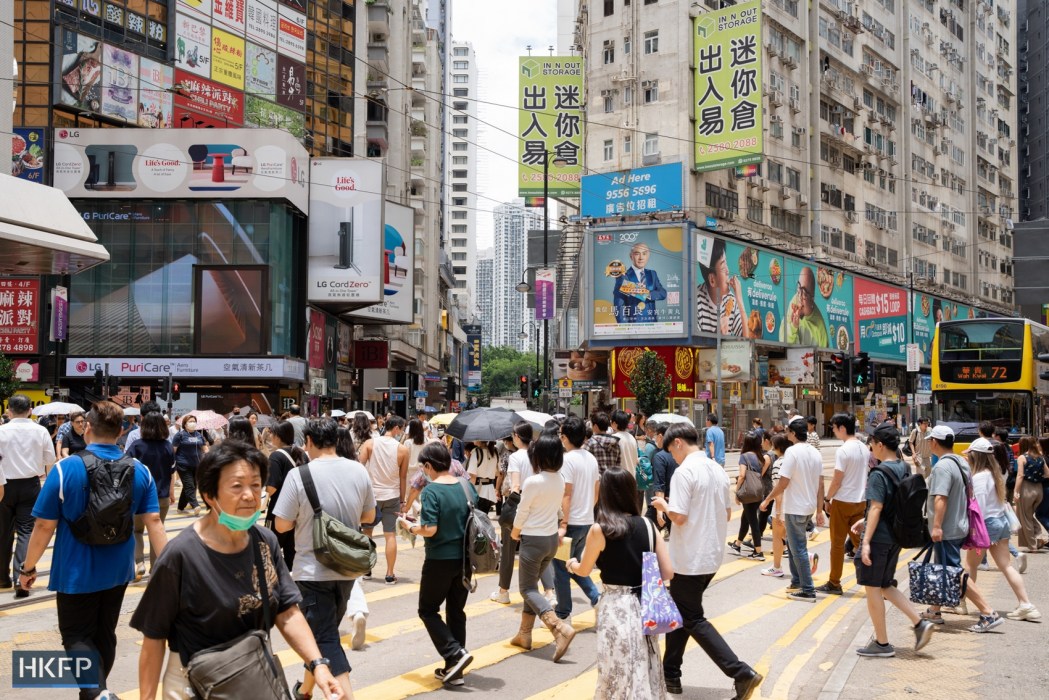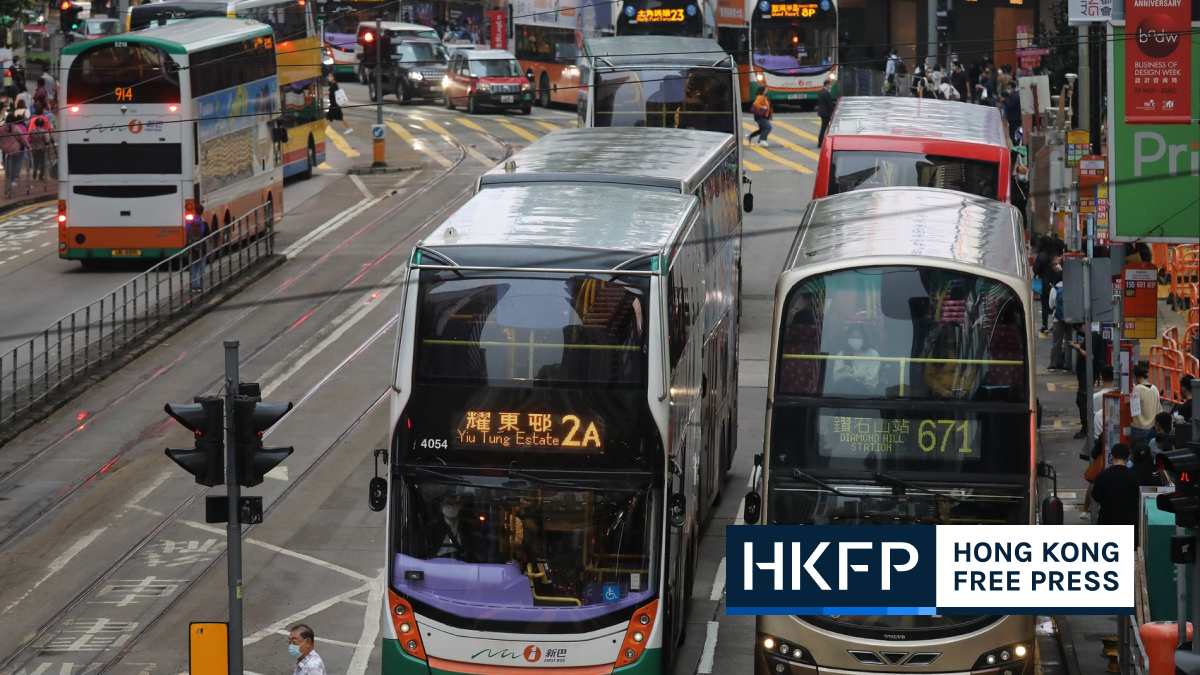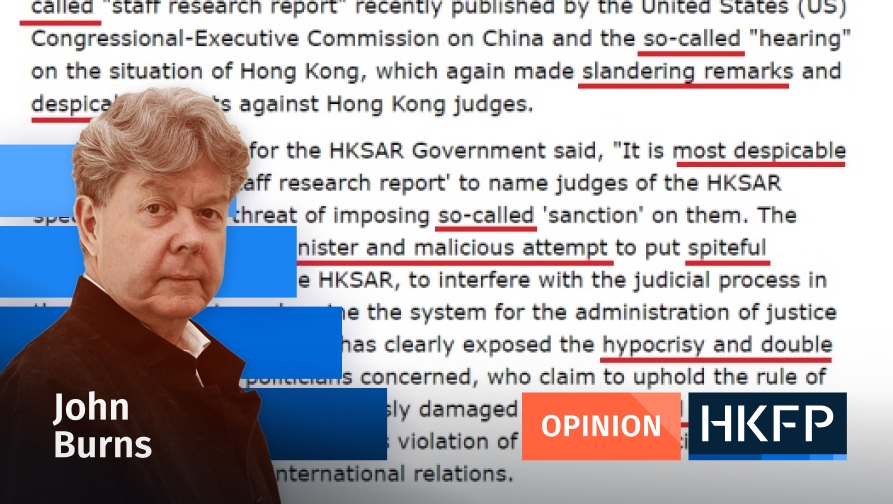Hong Kong’s year-end population has grown by 0.4 per cent to 7.5 million, according to provisional government figures for 2023, despite a continuing decline in the number of young people in the city.

The Census and Statistics Department released its latest population figures on Tuesday, which provisionally showed that Hong Kong’s population had risen to 7,503,100 by the end of 2023, from 7,472,600 at the end of the previous year.
A department spokesperson attributed the population increase to “a net inflow of 51,700 Hong Kong residents,” led by 40,800 One-way Permit holders, referring to a document issued to mainland Chinese with family ties in Hong Kong allowing them to settle in the city.
In 2014, there were 1.54 million people in this age range in Hong Kong, accounting for 21.3 per cent of the total population. Last year, the government recorded 1.23 million people aged 20 to 34, or 16.3 per cent, according to year-end population data.
Hong Kong was hit by a emigration wave following the 2019 protests and unrest, which coincided with lengthy and strict Covid-19 controls and the enactment of a Beijing-imposed national security law in 2020. After recording a peak population of 7.52 million at the end of 2019, by 2021 the the number of residents had fallen to 7.4 million.
See also: How to measure Hong Kong’s mass exodus
Hongkongers have settled in the UK, Canada, Australia and Taiwan, along with other destinations that have incentivised workers to migrate. According to the British government, some 135,400 Hongkongers arrived in the country between early 2021, when it launched a residency route for holders of British National (Overseas) passports, and September 2023.
Despite the rebound in overall population data, Census and Statistics Department figures showed a noticeable decline in the number of young adults in Hong Kong, particularly those aged 20 to 34.
Last October, a survey conducted by international recruitment firm Robert Walters found that 52.3 per cent of professionals were considering leaving Hong Kong. Among them, 51 per cent were millennials aged 27 to 42.
Conversely, the city’s elderly population is growing whilst the city’s workforce shrinks. Last year, local media reported that Chief Executive John Lee said Hong Kong had lost 200,000 workers in recent years.
The government has launched initiatives to plug labour shortages by importing low-skilled workers on a short-term basis and launching new visa schemes to attract professionals to the city. Among the latter was the much touted Top Talent Pass Scheme (TTPS), which grants graduates from top universities and high-earners a two-year visa without first having to receive a job offer.

Labour chief Chris Sun said at the Legislative Council last month that, as of the end of last year, the government had approved around 51,000 applications under the TTPS since it was launched in late 2022, and some 36,000 had “arrived in Hong Kong.”
“In addition, more than 51 000 dependants were approved to come to Hong Kong under the TTPS, and nearly 36 000 of them arrived in Hong Kong,” Sun added.
Hong Kong, which last year had the lowest fertility rate in the world, saw a slight uptick in the number of babies born in 2023, recording 33,200 births up from 32,500 last year. During last year’s policy address, authorities announced that they would give a HK$20,000 cash bonus for each new baby born in the city in an effort to boost fertility. Earlier this month, the government announced it had started disbursing the money to eligible parents.
However, a number of people HKFP spoke to last year said the handout was not enough to incentivise them to give birth, with a sociology professor citing a lack of childcare options, uncertainty in society, and gender inequality as among the reasons Hong Kong couples were choosing not to have children.
‘Mobile residents’ buoy overall figure
The 2023 year-end population was buoyed by a 10.2 per cent rise in “mobile residents,” or those who do not live in the city on a full-time basis. There were provisionally 274,500 such people in the city at the end of last year, up from 249,000 in 2022.
The government describes mobile residents as those who “have stayed in Hong Kong for at least one month but less than three months during the six months before or for at least one month but less than three months during the six months after the reference time-point.” The reference point is not provided.
Support HKFP | Policies & Ethics | Error/typo? | Contact Us | Newsletter | Transparency & Annual Report | Apps
Help safeguard press freedom & keep HKFP free for all readers by supporting our team

LATEST FROM HKFP
HKFP has an impartial stance, transparent funding, and balanced coverage guided by an Ethics Code and Corrections Policy.
Support press freedom & help us surpass 1,000 monthly Patrons: 100% independent, governed by an ethics code & not-for-profit.










